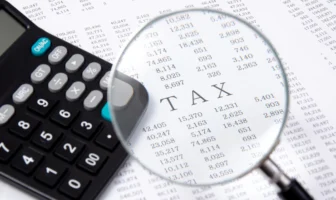
If you’re a typical accountant, it can be challenging to stand out in the job marketplace. But there are plenty of ways to set yourself apart and earn new opportunities. Obtaining your CPA designation is one of the best.
The Tangible Benefits of Being a CPA
If you’re an accountant, then you’ve almost certainly had thoughts about becoming a Certified Public Accountant (CPA). And as you weigh the pros and cons of pursuing this certification, you’ve thought to yourself, “Is it worth it?” You’re fully aware of the sacrifice required – including a rigorous exam preparation process – but what’s waiting on the back end?
While every accountant will have to make their own decision about whether becoming a CPA makes sense in their specific circumstances, here are a few tangible benefits worth factoring into the choice:
1. Better Money
The most obvious reason to get your CPA designation is an increase in earning power. Research shows that the average entry-level CPA salary is $64,000 (with a range of $44,000 to $84,500). By comparison, the average non-certified accountant makes around $51,000. That means that over the course of a 20- or 30-year career, you’re potentially looking at as much as a $1 million difference in career earnings.
Even if you decide to open up your own practice, you can usually charge a 10 to 15 percent premium on your services as a CPA. This dramatically improves your earning power and provides an excellent incentive to grow your practice.
2. Greater Flexibility
When you’re a CPA, you have a lot more choices for when and how you work. Rather than being tied to an 8-to-5 office job with one of the big firms, you can set more flexible hours. (Including the chance to work remotely in many instances.) You also get greater travel opportunities (if this is something that interests you). Because of International Financial Reporting Standards, CPAs are in high demand everywhere they go.
3. More Opportunities
There’s nothing wrong with being a non-certified accountant, but there’s a lot more competition in the industry. There are countless other people who can do what you do. This makes it challenging to go out and get competitive opportunities.
As a CPA, job variety is very much an option. You can work for public companies, private companies, non-profits, government agencies, and/or become self-employed. There are also niche opportunities within specific industries. (For example, some CPAs become forensic accountants and work closely with law enforcement to put white-collar criminals behind bars.)
4. Better Job Security
There’s a certain level of job security that comes with the CPA designation. As one of the most highly sought-after designations in the world, it gives you a competitive advantage over almost every other industry professional. This means even when the job market is cold, your resume will always rise to the top.
How to Become a CPA
Becoming a CPA can be a challenging process, but it’s almost always worth it in the end. You’ll need to meet a few basic requirements (some of which you may have already satisfied by now). This list of requirements may vary from state-to-state, but includes items like:
- Education requirements. Depending on your state of residence, you’ll need to earn somewhere between 120 and 150 postsecondary credits at an accredited institution. (For states that require 120 hours, you’ll need a bachelor’s degree. For those requiring 150 hours, a master’s degree is necessary.) The good news is most accountants already have this under their belts. However, if you don’t, getting your degree is the first step.
- Citizenship qualifications. There are 24 states that require U.S. residency to earn a CPA certificate and 26 that do not. In the states that do require you to be a resident, some have a six-month prerequisite before you’re allowed to apply for your certificate.
- CPA exam. Finally, you’ll have to sit for the CPA exam and pass each of the four sections: Auditing and Attestation (AUD), Financial Accounting and Reporting (FAR), Regulation (REG), and Business Environment and Concepts (BEC).
Once you pass the four sections of the CPA exam, you’ll simply need to fill out the appropriate paperwork and adhere to the process. You’ll receive your certificate and can begin enjoying all of the benefits that come from officially being a CPA.
You May Also LIke:




























